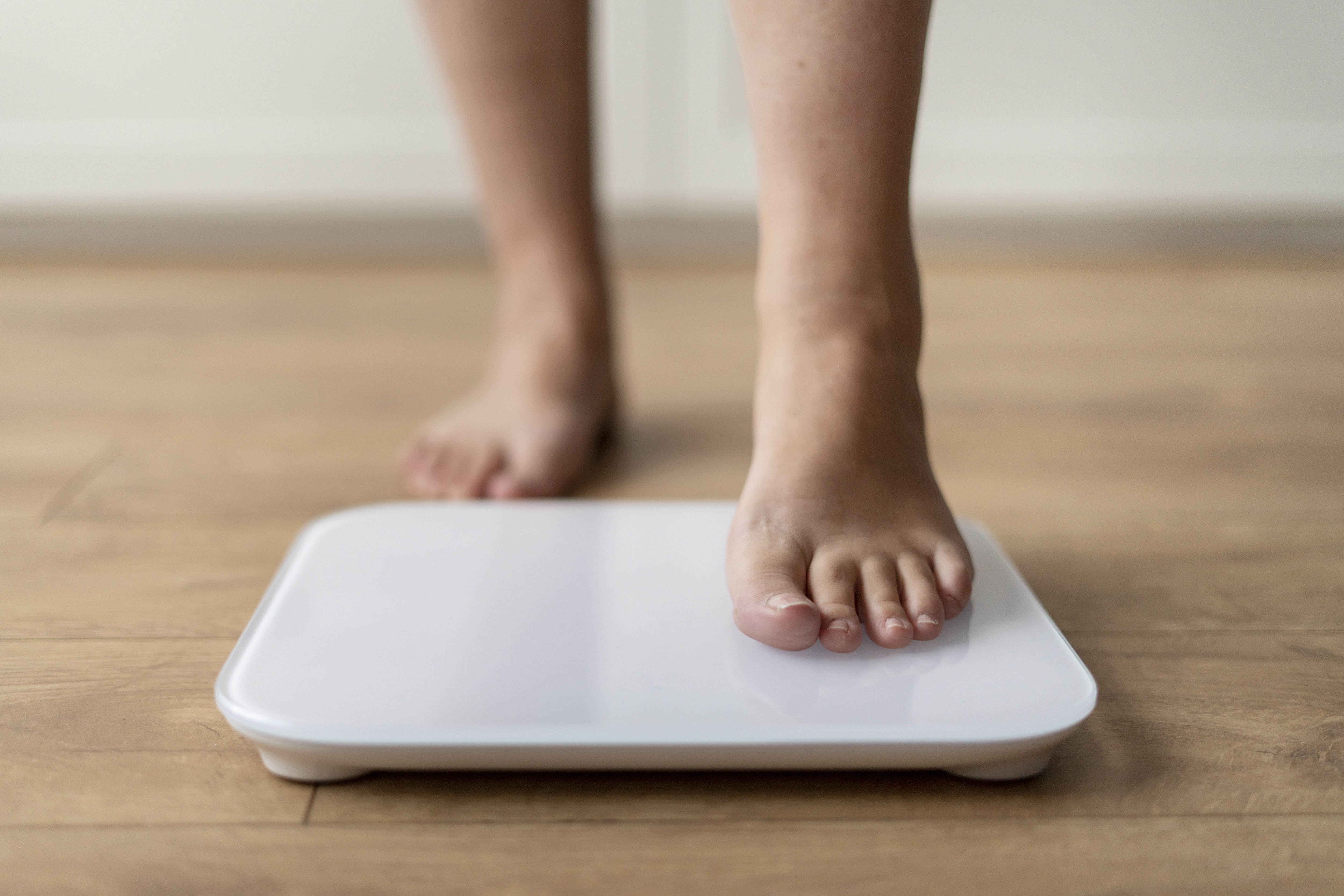Table of Contents
- Women and Whey Protein
- Whey Protein for Women: Why Is It So Essential?
- Promotes healthy Hair And Skin:
- Protein Builds Muscle Mass:
- Improves Bone Health:
- How Much Protein Do Women Really Need?
- What is whey protein?
- Types of whey protein
- Whey protein nutrition facts
- Benefits of Whey Protein for Women
- Why Women Fear Whey Protein: Myths & Facts
- Conclusion
Women and Whey Protein
Protein is a key macro nutrient that our body needs. We need protein for building and repairing tissues,for production of hormones and enzymes, for muscle strength and muscle mass and to maintain a healthy immune system. The protein requirement varies from person to person based on multiple factors such as age, activity level, eating habits and health conditions.
Everyone needs to consume enough protein, from kids to elderly and men and women. However, women are more likely to consume less than optimal amount of protein on a daily basis. We need to make sure females know how important protein intake is as it does much more than just aiding to weight loss.
Whey Protein for Women: Why Is It So Essential?
Promotes healthy Hair And Skin:
Hair, skin, and nails are made up of protein (keratin) and we must provide the necessary building blocks to our body to continue producing it. Collagen accounts for 70% of the weight of our skin and it is a protein. It helps us keep our joints stable and mobile and is found in connective tissues. Lack of protein intake can cause premature wrinkles.
Protein Builds Muscle Mass:
Protein is present in every cell of our body and is extremely essential for women. It is involved in various processes of our body from cells to muscle which aids in repairing and regenerating cells. Women start losing muscle mass at a rate of approx 3-8% per decade after the age of 30 and this rate of decline increases after the age of 60. Having adequate protein helps in the process of muscle growth and maintaining muscle mass.
During perimenopause and menopause, specific factors such as decreased estrogen production can lead to accelerated muscled and bone loss and hence emphasizing on adequate protein with resistance training becomes extremely important.
Improves Bone Health:
As women age they become prone to illnesses like osteoporosis and sarcopenia.
According to the NOP (National Osteoporosis Foundation), every two women over 50 account to have osteoporosis and will break a bone due to this. Protein plays a vital function here. High-protein diets have shown results of higher levels of bone mineral density and lower rates of bone loss.
How Much Protein Do Women Really Need?
RDA of protein for women:
The recommended dietary allowance of protein for women as per National Institute of Health (NIH) guidelines is as follows:
Children and youth : 1.0 - 1.3g/kg BW
Adult sedentary women: 0.8- 1g/kg BW
Pregnant women:
Early Pregnancy: 1.22 - 1.66g/kg BW
Late Pregnancy: 1.52- 1.77g/kg BW
Breastfeeding mom: 1.3g/kg BW
Elderly women (50+): 1.2 - 1.6g/kg BW
After understanding the importance of protein in our body let’s dig deeper about the most popular supplement in the segment of dietary supplements- Whey Protein.
Whey protein has been immensely popular in recent years because of its easy accessibility, convenient to use and numerous health benefits. It is a complete protein and is available in the form of protein shakes, bars, cookies etc that helps us increase our protein intake.
What is whey protein?
Whey protein powders are actually a by-product of milk produced in the process of cheese making. During the process of making cheese, the milk is separated into curd and liquid whey by adding enzymes.
This liquid whey is further pasteurized and spray dried into a powder.
Types of whey protein
In powdered form, there are 3 types of whey protein available in the market:
Whey protein concentrate: It is generally high in protein and has a lower concentration of fats and carbohydrates. The concentration of protein is above 80 percent to 90 percent. It is the most economical whey protein available in the market as compared to the other two.
Whey protein isolate: These are processed further to remove fat and lactose and the concentration of protein is around 90-95 percent. They are generally expensive as compared to concentrate whey protein.
Whey protein hydrolyzed: Hydrolyzed proteins are the purest form of whey protein. It is produced through the process of hydrolysis and its rate of absorption and digestion is way faster compared to the other two forms of protein.
Other than Whey Protein there are few other types of plant and animal protein which are gaining popularity in the market:
Casein Protein: Similar to whey, casein is a protein produced from milk. This takes longer to digest and absorb in the body as compared to whey.
Egg Protein: As we all know eggs are an excellent source of protein. Egg protein powders are made from egg whites and are an excellent source of protein. However, it is seen that they may provide lesser satiety as compared to other available protein powders as the high fat yolks are removed.
Pea Protein: It is a popularly consumed protein among vegans and people sensitive to dairy products. It is made from a high fiber legume, split yellow pea. A small study has shown pea protein to have similar effects as weight protein.
Hemp protein is also a plant-based protein rich in omega-3 and several EAAs. It appears to be a well digested plant protein source though not a complete source of protein.
Whey protein nutrition facts
Here’s a guide on things to check while buying whey protein:
- One serving of whey protein powder should be around 30-33 grams having:
- 120 calories approximately
- 20-25 grams of protein
- 2-3 grams of fat
- Less than 5 grams of carbohydrates
- 1 gram of sugar
- Leucine content of 2.5-3 grams
Whey protein also contains vitamins and minerals like calcium, iron, and vitamin B12. Other than the major benefits, it has gained popularity over the years for multiple reasons like:
- It is a convenient way to complete the protein requirement for busy individuals. A single scoop of whey protein helps us directly get 25g of protein without any hassle of cooking.
- Taste: Protein sources are limited, especially for vegetarians. Whey proteins are available in various flavors and can be used in multiple ways which helps completing the protein intake easier
- Low calories: A scoop of protein gives us 25g protein in just around 120-125 cals. To get a similar amount of protein from any other food source will cost us higher calories.
- Travel friendly: Easy to carry and consume while you are out makes it an extremely convenient option.
Benefits of Whey Protein for Women
Muscle Building and Recovery: Protein helps in muscle building and recovery. Whey protein contains all the essential amino acids required for muscle growth and repair. Whey protein helps in conveniently completing the protein intake and when coupled with resistance training and calorie surplus helps in muscle growth.
Weight Loss: Protein helps in weight loss by reducing appetite and increasing satiety. Taking whey protein or protein rich foods before meals or post workouts can help reduce overall calorie intake, leading to weight loss.
Immune System Support: Whey protein contains immunoglobulins and lactoferrin (found in milk products), which help us support the immune system and improve overall health.
Whey protein for women
The skepticism that we see towards weight training by women is the same we get for whey protein as well. It is also because of how whey protein is being marketed in the general public and the lack of general awareness about supplements.
Generally, whey protein is promoted as a muscle-building supplement and marketed by body builders which brings in a fear of getting muscular and bulky for beginners especially women.
In reality, whey protein is just a convenient way to fulfill the daily protein requirements of an individual irrespective of their gender and age. It is as natural as any other source of protein like chicken, eggs, soya, paneer etc. Protein requirements can also be fulfilled by food sources, for example, the calories and protein (including the EAAs) offered by whey protein is the same as 100 grams of chicken or fish or 40 grams of soya. The convenience to use whey in our daily lifestyle makes the difference.
Hence, it is completely safe and effective to consume whey protein for women and it has no different effect from men. So, if completing our daily protein requirements from food sources gets difficult, we can consider whey protein as a part of our diet.
Women can also consider their preferences,dietary restrictions and food tolerances while choosing a protein powder and go for other protein options as well available in the market .
Why Women Fear Whey Protein: Myths & Facts
Myth: Whey Protein is a Steroid
Fact: Whey protein is a natural source of protein that is found in milk and it does not contain any hormones. It is just a source of protein that helps individuals meet their protein requirements.
Myth: Whey Protein Will Damage Kidneys
Fact: Consuming whey protein has no harmful impact on healthy kidneys and is completely safe to consume. Individuals with a history of kidney disease should consult a doctor before consuming any protein supplement.
Myth: Whey Protein Should Only Be Consumed Post-Workout
Fact: While it’s true that protein post-workout helps in protein recovery and growth, whey protein can be taken at any time during the day.
Myth: Whey Protein is Only for Bodybuilders And Not General Population
Fact: Whey protein can be consumed by anyone to increase their protein intake and complete the protein requirement in their diet.In fact, for those who are unable to workout due to injury or illness consuming whey protein can prevent muscle loss and help maintain muscle mass.
Conclusion
Whey protein powder can help you get high quality protein in a concentrated and convenient form. It is not necessary for everyone to consume whey protein but they can definitely assist you in meeting your protein requirements without any harmful side effects.
So ditch the myths and embrace the power of whey protein. This convenient protein source isn't just for bodybuilders; it's a key to building strong, lean muscle, boosting bone health, and nourishing your hair, skin, and nails. Plus, it fuels satiety, supports weight management, and strengthens your immune system. Tailor your intake to your needs, choose quality brands, and remember, whey protein is a tool, not a magic bullet. Combine it with a balanced diet, regular exercise, and a healthy lifestyle to unlock your full potential and conquer your wellness goals! Whey up, ladies, and whey your way to a stronger, healthier you!
References:
Banaszek A, Townsend JR, Bender D, Vantrease WC, Marshall AC, Johnson KD. The Effects of Whey vs. Pea Protein on Physical Adaptations Following 8-Weeks of High-Intensity Functional Training (HIFT): A Pilot Study. Sports (Basel). 2019 Jan 4;7(1):12. doi: 10.3390/sports7010012. PMID: 30621129; PMCID: PMC6358922.





